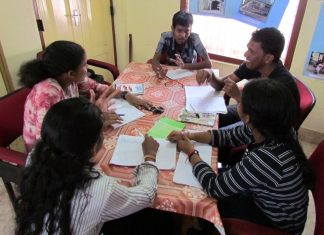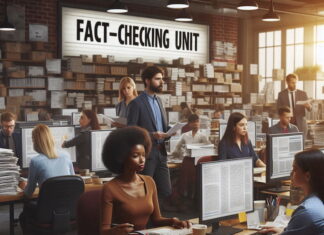Advanced
Our advanced section explores specialised topics for experienced journalists seeking to deepen their expertise. Develop your skills in data journalism, multimedia storytelling, investigative techniques, and complex narrative structures that elevate reporting to the next level. All our material is free to download, adapt and use. Scroll down our site map for all the content in this and other sections.
Health reporting for beginners
Most journalists are generalists, who can cover any kind of story. But there is also a place for specialists, providing expertise on particular subjects.
Specialisms in journalism
Specialist reporting means going beyond general news coverage in order to develop deep expertise, insight and trust in a particular subject area.
Evidence-based reporting
This guide provides a framework for journalists to compile in-depth reports on any topic by ensuring that all they write is based on verifiable facts.
Running an effective news meeting
Here we offer 50 suggestions for helping editors run stimulating news meetings that guarantee a steady stream of original stories.
Using AI as a newsroom tool
Discover the pros and cons of AI in news production. We interview Google Gemini to explore how artificial intelligence views its growing role in journalism.
Planning effective election coverage
Planning is essential for journalists to produce effective election coverage.
Dealing with algorithmic bias in news
Journalists need to be trained in how to recognise and deal with algorithm bias in order to counter the speed and scale at which biased content spreads.
Tips for motivating journalists
Daily news meetings should be inclusive and agenda-setting. Editors must foster a culture of original ideas and risk-taking to keep staff motivated and alert.
Computer-assisted reporting (CAR)
Computer-Assisted Reporting (CAR) refers to the use of digital tools such as spreadsheets, databases, and basic statistical analysis to interrogate large datasets.
Media safety during elections
Journalists covering elections should never carry a weapon, should have first aid training, dress appropriately, listen to the locals and avoid confrontation.
You might also like
Right of reply – scenario
When should journalists offer a right of reply? All the time, sometimes, never? Try our ethical scenario and add your comments.
Establishing a market differential
This article sets out the process for producing original, in-depth, issue-led journalism designed to inform the public debate.
Reporting from conflict zones
When reporting from a conflict zone a journalist needs to be sensitive, understand history and cultural issues, and put people first










